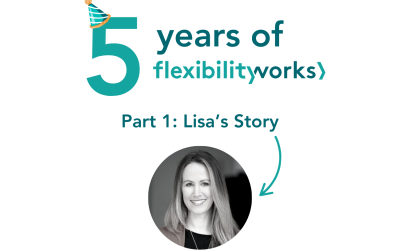The UK Government’s Employment Rights Bill, which aims to modernise employment law and give workers more rights including easier access to flexible working, is steadily making its way through Parliament and is expected to receive Royal Assent this summer. But with dozens of individual reforms being worked on by multiple government departments, it can be tricky to keep track of the detail – and the timelines – so here’s a handy recap on all things flex related.
Default flex
The biggie in the bill for us flexible working champions is a change on when employers can legally refuse flexible working. The existing law says employers ‘shall only refuse’ a flexible working request if one of eight permitted reasons apply, such as the burden of additional costs, or an inability to recruit extra staff.
The new wording is very similar. But in addition to setting out (basically the same) specific reasons flexible working can be refused, the bill also states it must be ‘reasonable for the employer to refuse the application on those grounds’. This subtle change means employment tribunals will gain greater powers to scrutinise employers’ decisions to refuse flexible working and assess whether decisions were ‘reasonable’. The aim of the change is to prompt (some) employers to think more carefully before refusing a flex request.
We’re expecting the Government to create a code of practice to help employers understand what counts as reasonable or unreasonable. This will take into account differences, such as industry sectors and employer size because these are likely to impact whether refusing a request was reasonable or not.
There is due to be a three-month public consultation on this element of the bill this winter, and it looks like code of practice won’t be enacted for employers until late 2027.
Home working inquiry
Alongside the workplace reforms in the Employment Rights Bill, the House of Lords Select Committee on Home-based Working, has just finished receiving written and oral evidence on hybrid and remote working (including some written evidence from ourselves).
The committee, chaired by Baroness Scott of Needham Market, is looking at the challenges and opportunities of remote and hybrid working for workers and employers, and the impact of remote and hybrid working on productivity in particular. It is due to report its findings by the end of November.
Can we help with your flex?
Our research shows the extra flexibility created in response to the pandemic is now well established and ‘business as usual’ for most employers. Our employment laws and government guidance are shifting ever more in favour of greater flexible working and for good reason: when flexible working is done well it delivers excellent benefits for people and businesses alike.
But we know increasing flexible working is not always plain sailing, which is why we offer a range of training and consultancy services to help you finesse your flex offer. Whether you’re after a one-off training workshop, a light touch audit, or a more comprehensive approach, we’re always happy to help. Get in touch for a friendly (and no pressure) chat.




